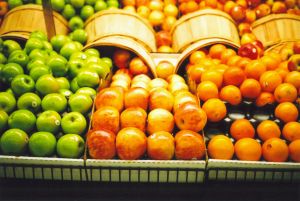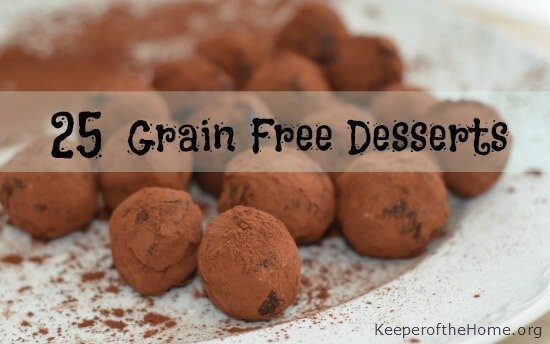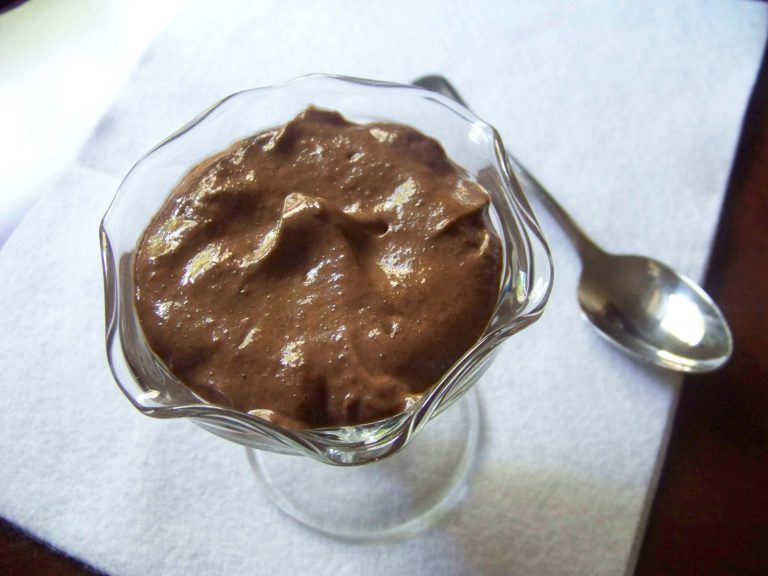Nutritional Foundations- Making the best of the regular grocery store

In a perfect world, we might all have access to farmer's markets, small local meat shops, farm fresh milk and eggs, and whole foods co-ops with organic bulk grains, beans, etc.
Reality check- This isn't a perfect world, and when it comes to finding the right foods to buy for our families, we very often just have to make do with what's available and cultivate a thankful heart for what we do have, and not what we wish we had!
When we lived in Japan, I had my first taste of really trying to navigate the murky waters of a conventional grocery store (one that was completely foreign and in another language!), during my first year as a wife and homemaker. I really wanted to learn to buy and prepare healthy food, but it was definitely a challenge! Over the course of the year, I slowly found other places to purchase my food, as I researched and asked around like crazy. In the meantime, though, those regular stores were all that I had and I had to make the best of them!
How glad I was for that experience when we returned to Canada, and although I desperately wanted to start finding better sources for our food, I had no car to use during the daytime, little money for gas anyways, and was left with one major option: Hoof it (you know, the old fashioned way!) to the grocery store, with my little darling in her stroller, and learn to do the very best that I could with what I had!
Over the next two posts, I'm going to share with you a few of the things that I learned as I scouted out the stores (and learned every nook and cranny of them!), while also fastidiously studying nutrition and frugality whenever I could. Did I ever mention how grateful I am for that first year back home and my little $150 grocery budget?
Tip #1
This is my biggest tip and I absolutely cannot stress it enough.
Shop the perimeter of the store! Do not enter the inner aisles (at least, not until we talk through this whole thing just a little bit more…)
What's so great about the perimeter exactly (and so gravely dangerous about the aisles)?
Allow me to walk you through a very brief tour of your typical grocery store. You enter, and navigate your way past the lost leader items (very rarely healthy!), and then inhale deeply as you push your way through the tempting floral section. You arrive in the produce section- a very good place to start! Moving on from there, you make your way back to the deli, where you might find some lovely cheeses (skip past the sandwich meats, though) and fresh olives.
Beyond that is the fresh and frozen fish, another perfect place to pause and add to your cart. Next, you delve into the meat section. Though we know this meat isn't of the highest quality, it sure does beat the breaded and deep fried varieties in the freezer section! Beyond that, the bulk bins are calling to you, full of dried beans, lentils, seeds, and spices. The dairy section is fast approaching, and while this needs some careful thought and attention, it is not entirely void of possibility. Lastly, you round the corner to the bakery, where you might find a loaf of sourdough rye, to round out the items you have gathered in your cart.
Did you notice the absence of boxes and cans? Of cartoon characters and artificial colors? Of instant this and reduced-fat that?
Now, I know. Not everything I mentioned is the ideal. Perhaps your store doesn't carry many organics. Maybe yeast bread is all there is, and the options for whole grains are pretty slim pickings. The beef has never even seen the light of day, let alone had the opportunity to actually use it's muscles. Those would be things to start considering, as you research the options available in your area (and I will be addressing the how-to of that research in an upcoming post).
In the meantime, though, the best place to begin is with a truly whole foods, unprocessed diet. Next time, I will take a closer look at the different elements of the store (and even those pesky aisles!) to see how to make the very best choices out of what is available!
I'm curious- how many of you feel sort of "stuck" with a regular grocery store, either for all or most of your shopping? If so, what are your particular concerns or questions about what to buy? I'd love to take the time to answer some specific questions on deciding between the options available, or trying to adapt what's available to a healthier diet (at least, as much as I'm able to!).






I’ve been trying to buy as much organic as possible. I printed the list you linked to a while back of the most important things to buy organic. Most of our regular stores do carry a bit of organic and even will run sales on it. My issue is whether to buy non-organic so we can eat more,say, apples or buy organic and only be able to get a few apples because of the price and my budget. I find that the fruit is a bigger expense than the basic organic veggies(carrots, greens, etc.). How do you decide between quantity and quality? At my stores , the organic fruit is outrageously priced even in season.
I do try to shop the outside of the regular grocery store. I also have access to a very small health food store. I am currently not a member yet, but am looking at becoming a member towards the end of the summer.
My issue is that the health foods store is SO much more expensive than the Walmart grocery store. I almost can’t afford to buy many things at the health food store (such as milk as we go through at LEAST 2 gallons a week for just my husband and myself). While Walmart does have a few organic items, they are few and far between. It is very discouraging because I want to eat organic, but with the prices, it is out of our current budget.
Any encouragement and suggestions would be appreciated!
Amanda
My husband and I were very frustrated when it came to grocery shopping. All our stores had was refined, High Fructose Corn Syrup saturated, processed foods! Say that 10 times fast…anyway our daughter was diagnosed with auditory processing disorder and at our homeschool convention we hear a lady speaking on left and right brain learning and learned that food plays a BIG part of how any child learns. So we tightened our spending belt and went further to get the items we needed to eat healthy. We planted 3 fairly large gardens, go to farmers markets and swap produce with friends. I am also preserving alot of our food for later use. So far our children are doing MUCH better in every area of life.
My local grocery store has a TON of organic foods, including locally pastured organic meat and poultry. The organic produce section seems to grow all the time, so I am well served in my neighborhood. While I am not a huge fan of “industrial organic”, my grocery chain (starts with “L”) has a house brand organic label that is priced very competitively for things like canned tomatoes, broth, baby food (although back in the day, I made my own), cleaning supplies, and dairy products (milk and eggs).
We did a weekly organic produce delivery for a number of months, but it was just SOOO expensive and I got tired of cooking chard and kale, LOL!
Unless I need some herbal stuff or vitamins, I just don’t drive across town to the health food store. So the local grocery store (2 blocks away!) is the source of all our food.
I definitely see MaryAnn’s point about quantity vs. quality in buying produce. We’ve gone with quantity for now. We’re going to eat, so eating fresh produce (even non-organic) is better than snacking on something else. We can easily go through 20 pounds a week for the two of us. For non-organic, I can do that for $25-40. For organic I’m looking at $50-100!
But being frugal now should pay off later. We’re saving toward a house — hopefully moving in a year or two — and plan to plant fruit trees and have a veggie garden. Then I won’t have to choose between quantity, quality and frugality!
However, I’ve been convicted lately that more important than improving my diet is keeping a thankful heart. If If I spend more time wishing for better things than giving thanks for the bounty I already have, something is seriously wrong. 🙂
We are military (US) and we only have a “regular” grocery store to shop at. The nearest health food store is 2 hours away. And raw dairy is illigal in our state. And if it wasn’t the nearest would be 3 hours away. Our store has a few organics…very few. I am interested in what you have to say about this.
God Bless
These are all great comments and issues you bring up- I will try to address them as fully as I can in my upcoming posts! Thanks!
Ditto to what Maryann said. I want to buy organic but everything is so expensive at my grocery store and there is not a whole lot of variety. I just can’t see myself paying for a half gallon of organic milk what I pay for a whole gallon of regular 1%. Also, do you think that regular whole milk is better in general than 1%.
I feel less stuck than I did when I first moved here. My store seems to be getting more and more in for natural and organic foods. Its often cheaper than other sources too (although I would rather support smaller health food stores, my budget won’t really allow for that). I do what I can and try to be thankful. With rising food prices, and possibly a change in my DH’s job that will mean less pay, its going to be a challenge this year. I am mainly hoping to find some sources for doing some more canning (things don’t grow that great here for large quantities). Also, finding better sources of eggs and meats. Its hard to ask around. Where do you start? How do you find them? Right now I have okay sources but not ideal. I appreciate the other comments on feeling thankful for what I have. Maybe that can be addressed to a bit more? Its a hard one to cultivate (in anything).
I don’t think I ever head down the aisles, unless I’m behind on daiper washing and need a disposible to hold me over! And I always feel that I’m the only one with a cart loaded (and I mean LOADED) with fresh produce and some meats.
Thankfully we have access to lots of raw dairy and good meat (even 1 farmer who makes NT foods). However, what it comes down to for me is that I can’t haul the 4 kids to the 2 farms, 1 grocery, and 1 natural store that I need to stop at to get these things (for just 2 weeks worth of whole and allergen-free food) without skipping an entire morning of homeschool. Also, the NT type meats are sooooo very expensive (4.75US$ for 1 lb gr. bf!) that I have to go with 2nd best (grain fed beef/pork/poultry). I literally do not have the time to ferment my own dairy or kombucha or garden!
But at least God has got us out of the McDonald’s and into the outer aisle of the grocery! I feel very convicted about feeding my kids good food so I know that He will continue to provide the time, $, and gas that it takes for me to bring it home.
Nice post!
Andrea
I went to a normal grocery store yesterday and it was word for word what you said. I live in an area where the bigger grocery stores don’t exist. I found the larger ones to have much more plastic wrapping.
I know this is quite old now, but I’m catching up with a lot of these posts in order to try to get my family on a whole foods diet. Having spent some time at a farm in my high school years, I did learn organic vs commercially grown produce as well as quality of meat, eggs and milk (having finally eaten the real thing), but I still feel we could make significant improvements. However, what really caught my eye was that you said you had lived in Japan. My husband was recently stationed in Okinawa and I am finding it very difficult now to find good, quality food. Thankfully we at least have our commissary on base that carries food in English (oh the small things you begin to appreciate), but they rarely have the best quality food. I would love to hear some tips for buying whole foods from when you lived in Japan! I want to start exploring locally, but quite frankly am a little intimidated.